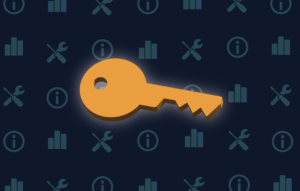Blog Team
Congruity360 Marketing
In today’s data-driven world, the push for data classification is more vital than ever. With the exponential growth of digital data and increasing threats from cybercriminals, efficiently categorizing and protecting sensitive data has become a top priority for businesses. Data classification not only provides a clear roadmap for data security measures but also optimizes data usage, making it a key player in business strategy.
Data classification is crucial for businesses because it lays the foundation for a robust data security framework. By identifying which data is sensitive and requires protection, organizations can allocate resources more effectively and ensure the right level of defense for critical data. It also aids in regulatory compliance, as many regulations require certain types of data to be treated with specific security measures. This proactive approach can potentially save businesses from hefty non-compliance fines and reputational damage caused by data breaches. Embracing data classification is not merely about avoiding risks—it’s about enabling your organization to confidently and responsibly handle data, a valuable asset in the digital era.
When approaching your boss about data classification, it’s essential to communicate clearly and concisely about the importance of this process in maintaining overall data security.
What is Data Classification?
Data classification, at its core, is the process of organizing data into categories based on file type, content, and other factors. These categories range from public data, which requires minimal security measures, to highly confidential data, such as personal information or corporate secrets, which necessitate high levels of protection. The goal is to help organizations understand what data they have, where it’s located, and how sensitive it is, allowing them to manage and secure it more effectively.
Why is Data Classification Important?
Data classification is not just a nice-to-have; it’s critical to any organization that handles any volume of data. The process of classifying data lends itself to a clearer understanding and more effective management of data. This is achieved by identifying what data is most sensitive and therefore what data needs the highest level of protection, facilitating targeted and efficient cybersecurity efforts. This also ensures compliance with various regulations, as many require different types of data to be treated with particular security measures.
Beyond security and compliance, data classification can also lead to better organizational efficiency. It allows for more effective data management and aids in making data-related decisions, from storage and processing to data archiving and deletion. In a world where data is proliferating at an unprecedented rate, having an efficient data classification system is a strategic necessity for organizations looking to thrive in the digital era.
Why Now?
Speaking of the digital era- the volume of data generated and managed by businesses now is continuously growing and becoming more complex. AI-powered tools are making their way into enterprises at a rapid pace as the technology becomes mainstream. This makes the task of protecting sensitive information increasingly challenging. Understanding where risky, sensitive, and aged data resides is vital to managing a healthy, continuously compliant data landscape. Accidentally using protected or outdated data to train a costly AI tool results in inaccurate output and wasted money. Ignoring the importance of data classification in the past may have been an oversight, but in the current landscape, it could have serious repercussions, including breaches that lead to significant financial and reputational damage.
In the era of stringent data protection regulations like the General Data Protection Regulation (GDPR) and the California Consumer Privacy Act (CCPA), non-compliance can result in hefty fines, making data classification an essential rather than optional component of business strategy.
Additionally, data breaches are becoming more frequent and sophisticated, and an unclassified data environment is an easy target for cybercriminals. The absence of data classification means that all data is treated equally, which is unproductive and risky.
Lastly, data is a valuable asset that can be leveraged cross-functionally across organizations for business insights, decision making, and strategic planning. However, without a proper classification system, businesses will struggle to unlock the full potential of their data resources missing opportunities to capitalize on valuable insights.
How to Talk to Your Boss About Data Classification
Approaching your boss about the importance of data classification may seem daunting, especially if it’s a topic they’re not familiar with. However, it’s a conversation that can drastically improve your organization’s data security. These strategies and key talking points can help you effectively communicate the critical relevance of data classification and ignite your boss’s interest in this vital process.
Do Your Research
Before approaching your boss, make sure you have a thorough understanding of data classification and its benefits. Familiarize yourself with the current state of data breaches in your industry, relevant regulations, and potential consequences of non-compliance. This will help you present a compelling case for why data classification is essential for your organization.
Next, understanding the current state of your organization’s data is crucial to the research process. Begin by conducting a data audit to identify what types of data your organization is storing, where it is stored, who has access to it, and how it is being used. This will help you recognize if there are any existing data classification systems in place, or if there are areas where sensitive data is not adequately protected.
Involve the Right Decision Makers
Data classification requires the involvement and support of various departments, including IT, security, legal, and compliance. When discussing this topic with your boss, make sure to involve these key decision-makers to show that data classification is a collaborative effort that concerns the entire organization. This will also ensure that all areas of the business are represented and can provide valuable input.
Have a Clear Implementation Plan
When presenting the concept of data classification to your boss, having a clear implementation plan is crucial. Outline your proposal starting with the preliminary stages of the project, such as conducting a thorough data audit to identify the kinds of data your organization handles, where it’s stored, who has access to it, and how it’s used. Detail the process of categorizing data based on its sensitivity level and the security measures to be adopted for each category.
Consideration should include an estimate of the resources, costs, and time that would be required for implementation as well as the tools and technologies that can aid in the process, such as data classification software.
Finally, address how the implementation of a data classification system will be monitored and evaluated over time, with regular reviews to ensure its effectiveness and compliance with evolving regulations. Be prepared to answer any questions they may have and address any potential concerns.
Tie It Back to Organizational Goals
While data classification is primarily about data security and compliance, it’s also crucial to tie it back to the organization’s overarching goals. This could include improving operational efficiency, mitigating risk, or enhancing decision-making processes. By showing how data classification aligns with these goals, you can make a more convincing argument for its implementation.
Common organizational goals related to data classification often revolve around:
- Improving data security
- Achieving regulatory compliance
- Enhancing operational efficiency
- Leveraging data for strategic decision-making
Come Prepared with Instant Insights
In conclusion, data classification is not just a beneficial practice, but a necessity in today’s digital landscape. Ignoring this crucial step can leave your organization vulnerable to data breaches, non-compliance penalties, and inefficient data utilization. To make your case for data classification, ensure you come prepared. Understand the subject thoroughly, involve the appropriate decision-makers, present a clear implementation plan, and most importantly, align it with your organization’s strategic goals. Remember, data classification is not an isolated process, but a collaborative one that plays a vital role in securing and leveraging your organization’s most valuable asset – its data.









